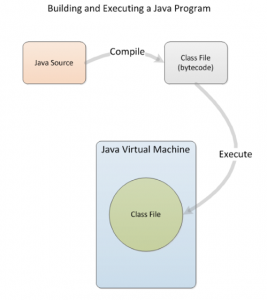iOS vs Android – the battle needs no introduction.
iOS vs Android: RAM Management
In today’s world, owning a smartphone has become a necessity. And when it comes to smartphones, there are only two major players in the market: the iOS devices and the Android devices.
The war between iOS and Android has been going on for almost a decade now. There are many valid reasons to fall on either side of the fence but that does not stop people from comparing the two to see which one’s better.
Well most of the times it is either iOS or Android crossing each other by just a margin. But there’s something you might not have noticed: iOS devices have lesser RAM than Android devices. Now, why is this?
WHAT IS RAM?
Before moving any further, let’s look into what is RAM and what exactly its job is. RAM (Random Access Memory) is a type of technology which accesses stored files on your computer or smartphone. Unlike hard drive memory, RAM doesn’t permanently store content. However, it is in charge of reading content when the system needs it to.
Since smartphones are devices with a limited size, there’s a small difference between how RAM is used on them versus how it’s used on computers. Ultimately, the overall goal is basically the same: deliver instructions and data to the processor so it can be processed, reduce load time and allow us move from one app to another quickly and without any hassles.
A lot of people have the perception that having more RAM means the device is faster – well that’s not exactly the case. Let me use my personal experience as an example. I recently shifted from a 6GB RAM One Plus to a 3GB RAM iPhone but that didn’t mean I was downgrading to a slower phone. In fact, the iPhone turned out to be faster despite of having half the RAM because the way iOS and Android use RAM is different.
COMPARING RAM
Most of the recent android devices have more than 4GB RAM. In fact some of them even have 8GB of RAM as well. On the other side, the latest iPhones have 3-4 GB RAM which is nearly half in some cases.
If you guys don’t really notice the RAM on these devices, let me just give you a small comparison: most of the recent laptops don’t have 8GB of RAM, that’s how excessive it is.
Now android devices won’t be equipped with this much RAM if they won’t be needing it right?
WHY DO ANDROID DEVICES NEED SO MUCH RAM?
Android has been very flexible since the beginning as it was designed to support many different manufacturers because unlike iOS , Android devices are manufactured by various companies. Android also has the ability to support different processor types and different hardware configurations.
Android apps have always run on the Java platform. Java is nifty because of its virtual machine. What the virtual machine does is that it translates the java code of an android app to work on whatever system it’s on. Basically, instead of rewriting and recompiling the entire code on your own, the java virtual machine handles it for you.
This does make the job easy but it comes with a cost.
The mechanism of the Java virtual machine is pretty complex and therefore requires a lot of RAM, not just to manage the actual processes of the virtual machine itself, but also to hold the original Java code for whatever app is being executed plus the translated code that actually gets executed by the system.

With time, the Android apps are becoming more and more advanced and one can even say “bloated”- and thus they require more RAM. RAM is also needed for background processes. (Background processes are common in Android apps)
Lastly, there is something known as “garbage collection” in java and the Android operating system is built around this system. Android apps are actually encouraged to use as much RAM as they require. Then, every once in a while, Android cleans up the data in RAM that’s no longer being used (“garbage”) and frees it, allowing other apps to use it. This method is optimal when there is a lot of RAM available in the device which is usually the case with most of the premium android devices.
And keeping these reasons in mind, if you’re planning on buying an Android device then make sure that it has a RAM of at least 4GB, for smooth performance.
WHY DOESN’T iOS USE AS MUCH RAM AS ANDROID?
Unlike Android, the iOS ecosystem is not very flexible. Java cannot be used to create iOS apps but instead you have to use Apple’s tools and do it Apple’s way. This does have a lot of benefits, though.
Since Apple has a tight control over the iOS ecosystem, it knows the exact specifications and requirements of its devices that will run the iOS and therefore they can make design decisions accordingly. iOS doesn’t use Java and also doesn’t make use of a virtual machine, which means significantly less RAM is used overall. Also, the approach towards memory management is quite different in iOS when compared to Android.
Android memory is handled by the Operating System whereas iOS memory is handled by the applications themselves. iOS apps automatically allocate and deallocate memory as and when required.
So, just because iOS devices have less RAM doesn’t mean they have worse performance. It has a different approach towards memory management as it doesn’t depend upon Virtual Machine like Android does.




